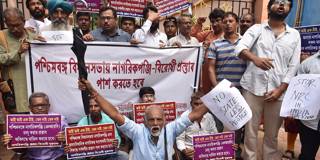Today, an estimated 15 million people are stateless, and tens of millions more are at risk of losing their nationality. This leads to exclusion and deprivation in every facet of life – with consequences that have become even more dire during the coronavirus pandemic.
LONDON – Maijaan Nessa, a 38-year-old Muslim woman, was born in India to Indian parents. She has lived there, in the state of Assam, all her life. But, seven years ago, she was declared a foreigner, arrested, and detained. While she languished in detention, her distraught eldest son died by suicide. Despite this devastating personal tragedy, and the barriers created by poverty and illiteracy, her Bengali Muslim husband and the rest of her family continued to fight for her release until, almost five years after she was first detained, Maijaan was freed. But her status is far from secure.

LONDON – Maijaan Nessa, a 38-year-old Muslim woman, was born in India to Indian parents. She has lived there, in the state of Assam, all her life. But, seven years ago, she was declared a foreigner, arrested, and detained. While she languished in detention, her distraught eldest son died by suicide. Despite this devastating personal tragedy, and the barriers created by poverty and illiteracy, her Bengali Muslim husband and the rest of her family continued to fight for her release until, almost five years after she was first detained, Maijaan was freed. But her status is far from secure.